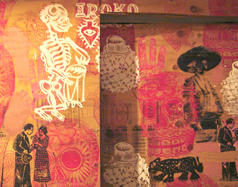I finally saw myself on television. And no, I wasn’t delivering the news in Spanish. I saw myself represented on CNN’s documentary, “Latino in America,” along with dozens of other Latinos who, like myself, make up the largest minority in this country, 50 million and growing.
Soledad O’Brien’s documentary, which was broadcast on October 21 and 22, has generated a lot of mixed reviews. I happen to be on the side of those who believe that she and her producers did a magnificent job.
Yes, it’s true that there could have been a better balance between the success stories and the focus on the challenges that confront Latino youth, like teenage pregnancy and suicide. But as far as I can remember, this is the first time that we could see on television, in English, a broad and nuanced portrayal of who we are as Latinos – our struggles, our challenges, the tremendous contribution that we have made to American society and the diversity that exists within our own community.
But here’s the question: are four hours of favorable programming enough to change the negative perception that some Americans have about Hispanics? What happens after the story leaves the air? The only images of Latinos you’ll be able to find on CNN will be those presented by Lou Dobbs, the controversial anchorman who has for years now been pointing his finger at immigrants coming from south of the border, blaming them for all of society’s woes, painting them as criminals and invaders speading pestilence across the lands.
One thing that I found most interesting is that in the days prior to the broadcast of “Latino in America,” CNN released the findings of a public opinion poll that reflected an enormous lack of understanding among many non-Hispanic Americans about Latinos. Fifty percent of those surveyed said that they assumed that all Latinos were immigrants. One out of five believed that all Latinos were undocumented immigrants.
This shouldn’t come as a surprise to me. How could these people know that six out of ten Latinos are born in the United States, and that millions more are naturalized citizens? The only images of Latinos that they see on their nightly news programs are snapshots of immigrants being rounded up in raids, or tattooed gang members being handcuffed on the floor.
Hollywood also deserves its share of the blame for the proliferation of negative stereotypes. In movies and on television programs, Latinos are almost always cast as maids or thugs. (Incidentally, it was wonderful to see the actress Lupe Ontiveros in the CNN documentary, explaining that she is actually not a maid but rather a highly educated woman who speaks five languages.) People need to realize that among Hispanics there are countless professionals, entrepreneurs, talented artists, thousands of elected officials and one very wise Latina woman on the Supreme Court.
We come in all colors and some of us have the same English accents as “ordinary” Americans. And if most of us speak Spanish, it is because it is this language that unites us as Latinos.
The Latino community has not only grown in numbers, it has spread throughout the 50 states, bringing diversity to communities in every corner of this country.
Our purchasing power has surpassed $1 trillion, and our political power is changing the way campaigns are run in his country.
We are a community that is proud of our cultural heritage, and we pass along our traditions to our children. We are a young community. The median age among Latinos is 27, and it is expected that the number of school-age Hispanics will increase by 166 percent by the year 2050. This means that the future of this country will be in the hands of our Latino youth.
“Latino in America” could be seen as just another television special, or perhaps it could be the beginning of a shift of attitude in this country. This is the perfect moment for non-Hispanic Americans to get to know their neighbors better. After all, we are Americans as well, and one day we will be the majority, not just the largest minority.
————
María Elena Salinas is an author, columnist and co-anchor of “Noticiero Univision.”
Translation: Ryan Croken. Ryan Croken is a freelance writer and editor based in Chicago. His essays and book reviews have appeared in The Philadelphia Inquirer, Z Magazine and ReligionDispatches.org. He can be reached at [email protected].
Join us in defending the truth before it’s too late
The future of independent journalism is uncertain, and the consequences of losing it are too grave to ignore. To ensure Truthout remains safe, strong, and free, we need to raise $17,000 by midnight tonight. Every dollar raised goes directly toward the costs of producing news you can trust.
Please give what you can — because by supporting us with a tax-deductible donation, you’re not just preserving a source of news, you’re helping to safeguard what’s left of our democracy.
